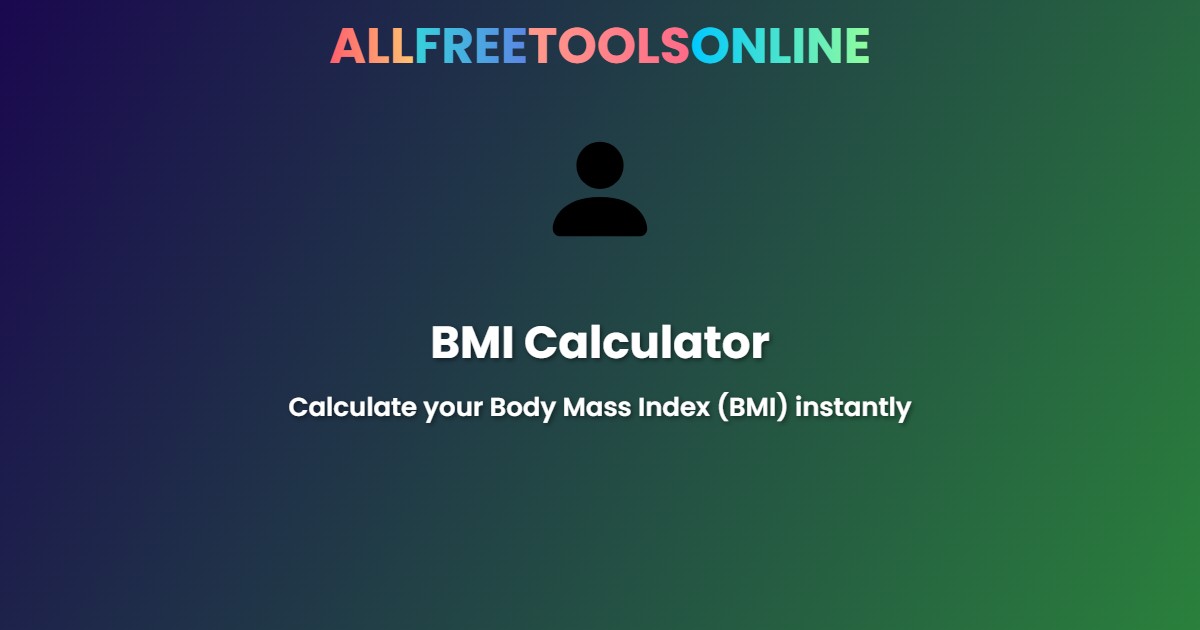BMI Calculator: Measure Your Body Mass Index Accurately
Complete guide to understanding BMI calculation, interpretation, and maintaining healthy weight

What is BMI and Why It's Important
Body Mass Index (BMI) is a simple calculation using a person's height and weight to assess body fat and overall health risk. BMI is widely used by healthcare professionals to screen for weight categories that may lead to health problems. Our BMI calculator provides instant, accurate results with proper categorization according to WHO standards.
BMI Calculation Formula
Standard BMI Formula:
BMI = weight (kg) / [height (m)]²
BMI = [weight (lbs) / [height (inches)]²] x 703
BMI = weight (kg) / [height (m)]²
BMI Categories and Interpretation
| BMI Range | Category | Health Risk | Recommendation |
|---|---|---|---|
| Below 18.5 | Underweight | Nutritional deficiency | Consult nutritionist |
| 18.5 - 24.9 | Normal weight | Low risk | Maintain healthy lifestyle |
| 25.0 - 29.9 | Overweight | Moderate risk | Weight management advised |
| 30.0 and above | Obesity | High risk | Medical consultation needed |
Key Features of Our BMI Calculator
Dual Measurement Systems
Supports both metric (kg, cm) and imperial (lbs, feet) units
Progress Tracking
Track your BMI changes over time with history feature
Professional Standards
Uses WHO-approved BMI categories and guidelines
Mobile Friendly
Works perfectly on smartphones, tablets, and desktops
Why Regular BMI Monitoring Matters
Health Risk Assessment
Identify potential health risks associated with weight
Diet Planning
Create appropriate diet plans based on BMI results
Fitness Goals
Set realistic fitness and weight management goals
Progress Monitoring
Track effectiveness of your health and fitness regimen
Understanding BMI Limitations
Important Considerations
While BMI is a useful screening tool, it doesn't directly measure body fat. It may not accurately reflect health status for athletes (high muscle mass), elderly (muscle loss), or certain ethnic groups. Always consult healthcare professionals for comprehensive health assessment.
- Doesn't distinguish muscle from fat
- Doesn't account for fat distribution
- May not be accurate for athletes
- Doesn't consider age and gender variations
Healthy Weight Range Guide
Height: 5'0" (152 cm)
Healthy Weight Range
97-128 lbs
(44-58 kg)
Height: 5'6" (168 cm)
Healthy Weight Range
118-155 lbs
(54-70 kg)
Height: 6'0" (183 cm)
Healthy Weight Range
140-184 lbs
(64-83 kg)
Frequently Asked Questions
Tips for Maintaining Healthy BMI
Nutrition Tips
- Eat balanced meals with proper portions
- Include fruits and vegetables daily
- Stay hydrated with water
- Limit processed foods and sugars
Exercise Recommendations
- 150 minutes moderate exercise weekly
- Include strength training 2x weekly
- Stay active throughout the day
- Find activities you enjoy
Ready to Check Your BMI?
Use our free BMI calculator to assess your health status and get personalized recommendations
Calculate Your BMI Now